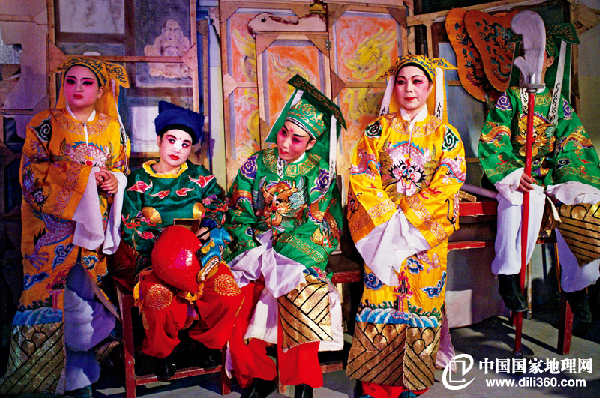
With a history spanning more than 400 years, Wuju opera, the second largest opera in Zhejiang province, is full of rich repertoire and distinct characteristics, and bears the traditional cultural features representative of the eastern province.
The opera is popular in the Jinhua district, located in the center of Zhejiang, and was once called “Jinhua Theater.” Jinhua has been the commercial center since the Ming and Qing dynasties for salt, silk and porcelain products. Abundant natural resources contributed to it which helped it become a place where traditional varieties of operas were featured.
Wuju opera is the combination of six famous opera tune patterns - the high-pitched tune, kun opera tune, luantan tune, Anhui opera tune, tanhuang tune and shi tune, most of which formed the foundation of Peking opera when the famous four Anhui opera troupes came to Beijing 200 years ago. Peking opera master Mei Lanfang once praised it as “the genuine Huiju opera and the father of Peking opera.”
Wuju opera consists of exaggerated and intense movements. In the past, the costumes for Wuju opera did not have sleeves, so the performers paid more attention on finger poses and figures. Moreover, many aerobatic maneuvers have been absorbed into Wuju opera, such as face-changing, rolling lamps and teeth play.
Wuju opera makeup is similar to what is used for Peking opera, which allows the audience to tell the personality of each character. Red, yellow, white, black, purple, green and silver are the main colors used for facial designs to represent different characters. For instance, red stands for loyal, courageous and upright people; white is used for sinister and cunning officials; while gold and silver colors represent gods and ghosts.
Originally, performers wore wooden masks with colorful patterns rather than makeup. It was too cumbersome when performing and hard to show facial expression, so makeup became the preferred choice.
The opera music was inspired by local folk melodies. Through the centuries, most Wuju shows were staged at outdoor venues, which contributed to the expansiveness of its style. Currently, there are 11 Wuju Opera troupes in East China.
